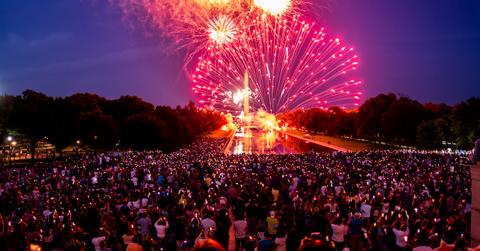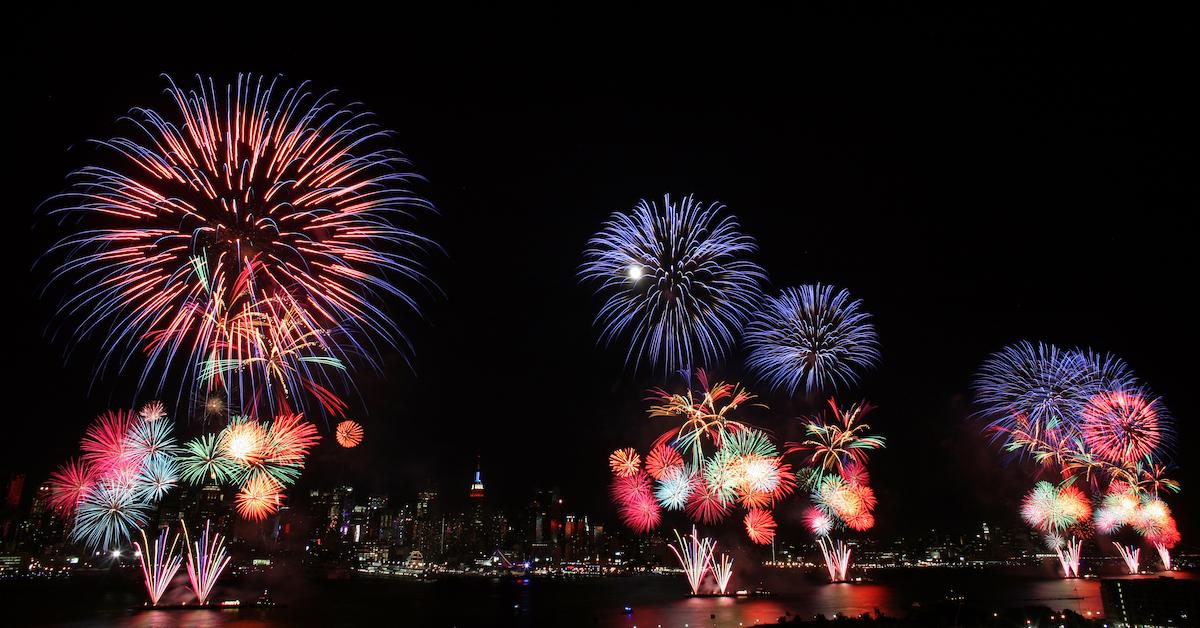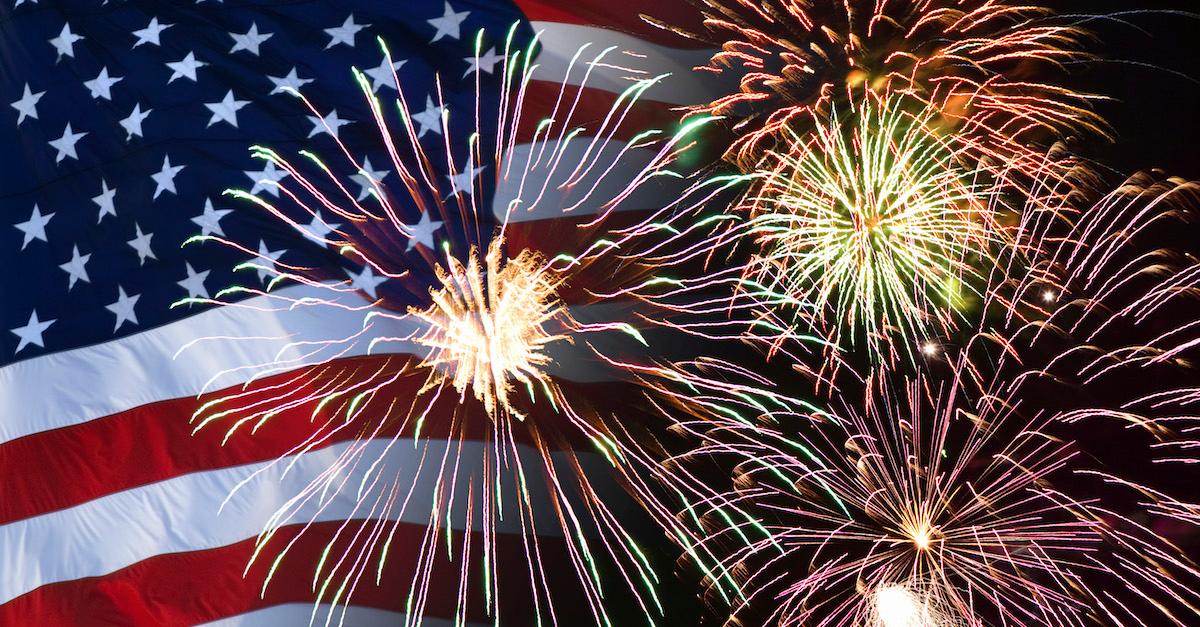Are Fireworks Bad for the Environment? What to Know for July 4th
Fireworks are a July 4th tradition, but they emit more CO2 than you realize.
Updated July 3 2024, 9:03 a.m. ET

Spectators watch as fireworks erupt over the Washington Monument on July 4, 2022 in Washington, D.C.
You have reef-safe sunscreen in your beach bag, a swimsuit made with recycled ocean plastic, and veggies ready to become kebabs on your BBQ. Looks like your July 4th is all sorted out. But don't forget about America's favorite Independence Day entertainment: fireworks.
Are fireworks bad for the environment, or is it OK to join the American masses and set them off this 4th of July? Here's everything you need to know about fireworks and their impact on the Earth.

The New York City skyline is seen in the distance as fireworks explode over the Hudson River during the Macy's fireworks display July 4, 2009 in Weehawken, N.J.
When were fireworks invented?
Fireworks may be best associated with the 4th of July, but they actually date much further back than that. According to the American Pyrotechnics Association (APA), there's evidence that the first "natural" fireworks were invented in ancient China, between 200 and 101 BC.
The fireworks are believed to have been made from bamboo, and they would overheat and explode when exposed to fire. Centuries later, sometime between 600 and 900 AD, a Chinese alchemist invented gunpowder, which was a combination of potassium nitrate, charcoal, and sulfur, which was then used to create the first chemical fireworks, as explained by the APA.
Then, on July 4, 1777, on the first anniversary of Independence Day, Philadelphia celebrated the holiday by setting off fireworks, according to PBS. Fireworks quickly became a July 4th tradition, with more and more U.S. cities setting them off every year.
What are fireworks made of today?
Today, fireworks are still made with gunpowder, also known as black powder. Gunpowder is typically still made up of potassium nitrate (an oxidizer), charcoal or carbon (fuel), and sulfur (an accelerant).
Additionally, other ingredients are added to fireworks to change the color, shape, and glitter factor, according to Wired. Handheld sparklers work pretty similarly to fireworks, also requiring a combination of charcoal and sulfur, but configured to emit a slow burn as opposed to an explosion.

Fireworks have a serious environmental impact.
As explained by Hydrogen Fuel News, fireworks in the U.S. emit over 60,000 metric tons of CO2 every year. Furthermore, fireworks emit a significant amount of ozone, which is also a greenhouse gas, as well as a secondary pollutant, according to a study published in the journal Nature.
Additionally, fireworks are often launched above lakes and rivers, which can contaminate waterways and marine life. Plus, the smoke and air pollutants that fireworks produce can negatively impact air quality, namely for people who have asthma or chronic obstructive pulmonary disease; it can also sometimes negatively affect people's respiratory health in general, according to a study published by NCBI.
While that all can sometimes affect spectators, it mostly impacts the pyrotechnicians who are setting off the fireworks — whether they're professionals or just people setting off fireworks in their backyards.
According to the U.S. Consumer Product Safety Commission's 2017 Fireworks Annual Report, between 2002 and 2017, an average of 7.25 people died every year as a result of fireworks, firecrackers, and sparklers in the U.S. And in 2017, an estimated 12,900 people went to the hospital for fireworks-related injuries in the U.S. Not to mention, fireworks can be triggering for veterans with PTSD, and they can be terrifying for dogs.
It's clear that fireworks are not good for the environment — but they're also far from the worst thing we do for the environment. (See: animal agriculture, plastic pollution, flying airplanes.) So if you are a big fireworks fan, consider attending your town's public fireworks show this year instead of setting off your own, so that you're not directly contributing to the mess — or putting yourself in danger.
You can also seek out another form of visually-appeasing entertainment this Independence Day — Just Energy recommends attending a laser show, a concert, a parade, or a campfire.
It's also important to consider other aspects of July 4th when trying to celebrate sustainably. For example, host an all vegan barbecue with plant-based burgers; use reusable crockery and cutlery for your Independence Day barbecue, picnic, or beach day; and upcycle materials you already have into DIY decorations, or reuse decorations from last year.
This article, originally published on July 1, 2020, has been updated.